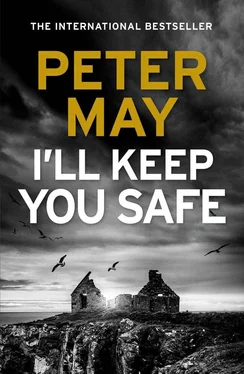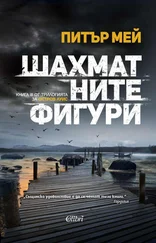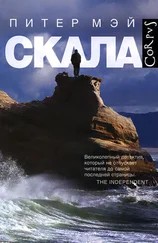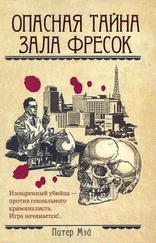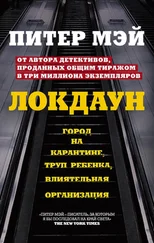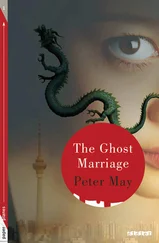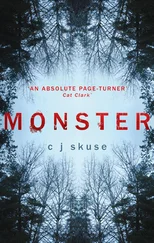Now he said, ‘How are you holding up?’
She shrugged. ‘As you see.’
He nodded. ‘Mum and Dad are pretty devastated.’ She turned to look at him. There was an odd anger, somehow, behind his words. Then he said, ‘I’m so sorry, Niamh, that you’re having to go through all this. It doesn’t seem fair.’
‘Nothing fair about death,’ she said. ‘Not much fair in life, either. We live it in the certainty that it will end. Just not how or where.’ She paused. ‘Ruairidh certainly never expected it to be here. Or now.’
They walked down the hill in silence for several minutes, before he said, ‘I keep thinking about that poor girl in the car with him.’
Niamh turned, surprised. ‘Really? Maybe it’s bad of me. I haven’t given her a single thought.’
Donald said, ‘Do you really think he was having an affair with her?’
‘I don’t know what to think, Donald. I wouldn’t have believed it of him. But the evidence is pretty damning. I’m just wondering if I’m ever going to be able to forgive him.’
He nodded gravely. ‘I can understand that.’ They were almost at the big stone-pillared gates when he said, ‘For what it’s worth, I don’t believe it for a minute.’
As they passed from the place of the dead, back to the city of the living, Niamh glanced up at the inscription engraved on the stone pillar. She read it aloud, as she thought it pronounced. ‘ Spes illorum immortalitate plena est .’ And turned to Donald. ‘You studied Latin, didn’t you? What does it mean?’
‘Their hope is full of immortality,’ he said.
And Niamh thought how all her hopes had died along with Ruairidh. Immortality was an illusion.
Lacroux Frères, Marbriers Funéraires , stood opposite the walls of the cemetery, in the Boulevard de Ménilmontant. A classical stone façade with a modern glass frontage. Green neon lettering above the door read Assistance Décès , which Donald translated for Niamh as Help with Death .
‘It’s not death I need help with, it’s life,’ she said.
The funeral director was a small, wizened man whose bald pate was fringed with dyed black hair. His black moustache might well have been dyed, too. He wore a dark suit and an air of indifference. Death was his business. The currency of his daily life. And Niamh supposed you would have to build some kind of wall between the two, if only to protect yourself.
He examined her paperwork closely and nodded. ‘Mmmm, yes,’ he said in English. ‘You have been expected.’ He led them through a showroom of headstones and wreaths, of plastic flowers and urns, to an office in the back. He had yet more paperwork. This time for her to sign. She barely paused to glance at it all before committing her signature and date to the foot of the final page. Whatever it meant was of no consequence to her.
An assistant came in with a small box of polished wood and set it on the director’s desk. It was about two feet long, twelve inches wide, and perhaps twelve deep. Niamh looked at it, perplexed, then at the funereal face of the director. He said, ‘In cases like yours, we usually use this kind of box. It is favoured by parents who wish to bury a stillborn child. What remained of your husband after the explosion has been vacuum-packed in heat-sealed plastic pouches. The box itself is sealed and leakproof.’ He lifted it to place inside a brown cardboard box, which his assistant closed and bound with plastic shipping straps.
Niamh’s mouth was dry, unable to form words, even had she been able to compose them. She stared at the box on the table in front of her. This was the reality. All that was left of Ruairidh after the explosion. She’d had no idea what to expect, but it had not been this.
The funeral director slipped the paperwork into a clear plastic pouch which he taped to the outside of the box. ‘Everything you will need for customs and airline security,’ he said. His tone was flat, his face expressionless. And Niamh wanted to shout at him. To scream at him, ‘This is my husband we’re talking about! My Ruairidh. A living, loving sentient human being.’ But all that would come were the tears that filled her eyes, and she wondered when they would ever stop.
She felt Donald take her hand and give it the gentlest squeeze.
The box sat between them in the back seat of the taxi, like the ghost of her dead husband. The remains of the biggest part of her life lay inside it, all that there was to take home with her to put in the ground. Donald stared silently from the window, and it was impossible to know what he was thinking, or feeling. Niamh turned her head to gaze sightlessly out of the other side of the car as the city spooled past in a grey blur.
All she wanted to do was curl up and die.
The sense of returning home had never been so bittersweet. As the 58-seater Saab 2000 banked beneath the cloud that lay low across the island, Niamh saw the old peat cuttings that scarred the moor, and the settlements that clung to the north side of Broad Bay — Tong and Back. Then as it banked again, the view south across the causeway at Sandwick to the Beasts of Holm. After twenty-four sleepless hours since collecting the box from the undertaker at Père Lachaise, the relief at being back was very nearly overwhelming. But only a part of her had returned from Paris, and she knew she would never feel complete again.
Donald had accompanied her on the journey, but apart from transactional exchanges had kept his own counsel. He sat beside her now in morose silence, his big hands folded together in his lap. She glanced at him and wondered what he was thinking. What he really felt. If he blamed her. As she was sure his parents would. And yet, since his arrival in Paris, he had offered her nothing but comfort. In his own quiet way. Someone less like Ruairidh would be hard to imagine, but she had been grateful for his company.
The airport was less busy on a Sunday. Not too long ago there had been no Sunday flights. Or ferries. She would have had to wait to bring Ruairidh home on the Monday morning, along with the Sunday papers.
The familiar blast of soft Hebridean air greeted her as she stepped down on to the runway, the smell of the sea never too far away. A glance across the airfield revealed a windsock at full stretch, inflated by the strong breeze that blew straight in off the moor from the west. Beyond reflections on tall windows that overlooked the apron, she saw pale anxious faces peering out from inside the terminal.
In the arrivals hall, curious eyes watched from a respectful distance as Niamh’s mother held her in a tearful embrace. There would not be, she knew, a single soul on the island who was not aware of what had happened in Paris. She knew, too, that her mother’s tears were for her, and not for Ruairidh. Oddly, her own eyes remained stubbornly dry.
Donald and her father shook hands awkwardly. Then as Niamh and her mother drew apart Donald said, ‘Do you need a hand with...’ His voice tailed off, and he found himself unable to finish the sentence.
Niamh shook her head vigorously. ‘No, it’s okay, Donald. Thank you so much for everything. I don’t know how I’d have got through this without you.’ He blushed with embarrassment and shuffled uneasily. ‘I’ll come and see your folks tomorrow to discuss...’ It was Niamh’s turn to find it hard to finish. She searched for a concluding word. ‘Everything.’
He nodded, leaning past them to retrieve his overnight bag from the carousel. ‘Mrs Murray. Mr Murray.’ He presented them an uncomfortable smile, then headed off towards the exit where a friend was waiting to take him to Balanish.
Niamh’s mother said, ‘What’s happened about the...’ Another sentence that was less than easy to finish. She composed herself. ‘About Ruairidh.’
Читать дальше
